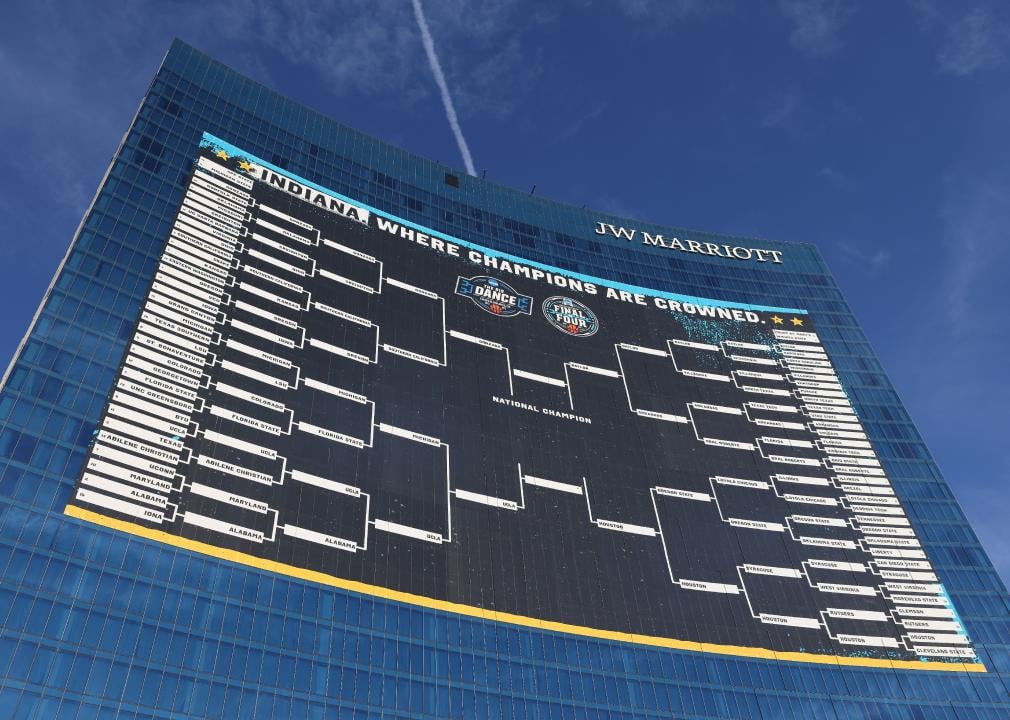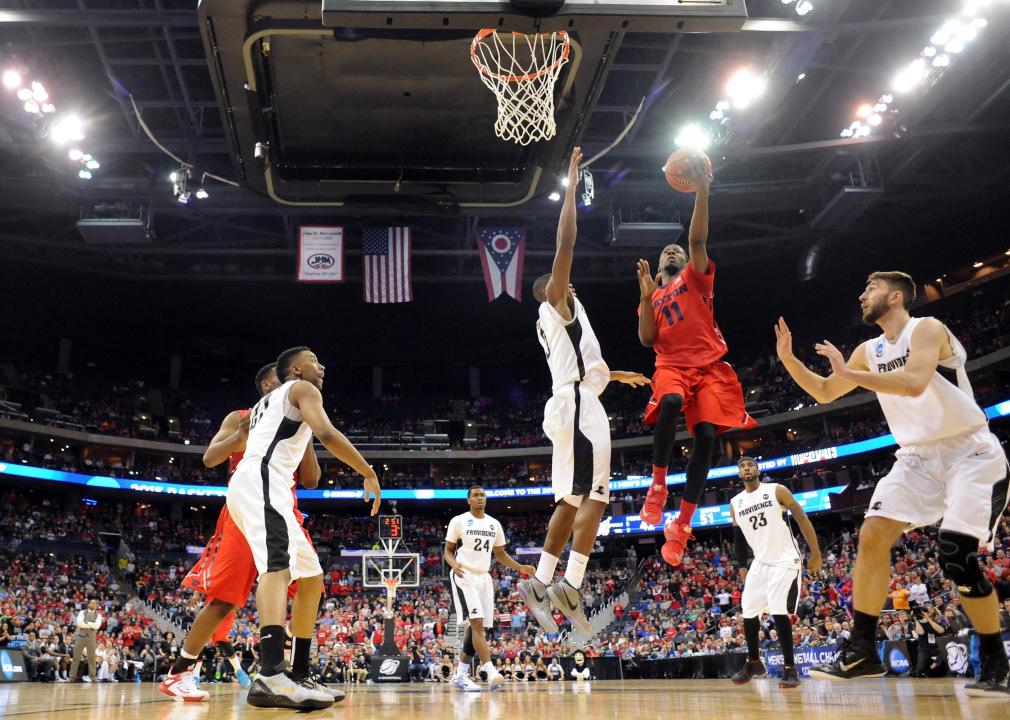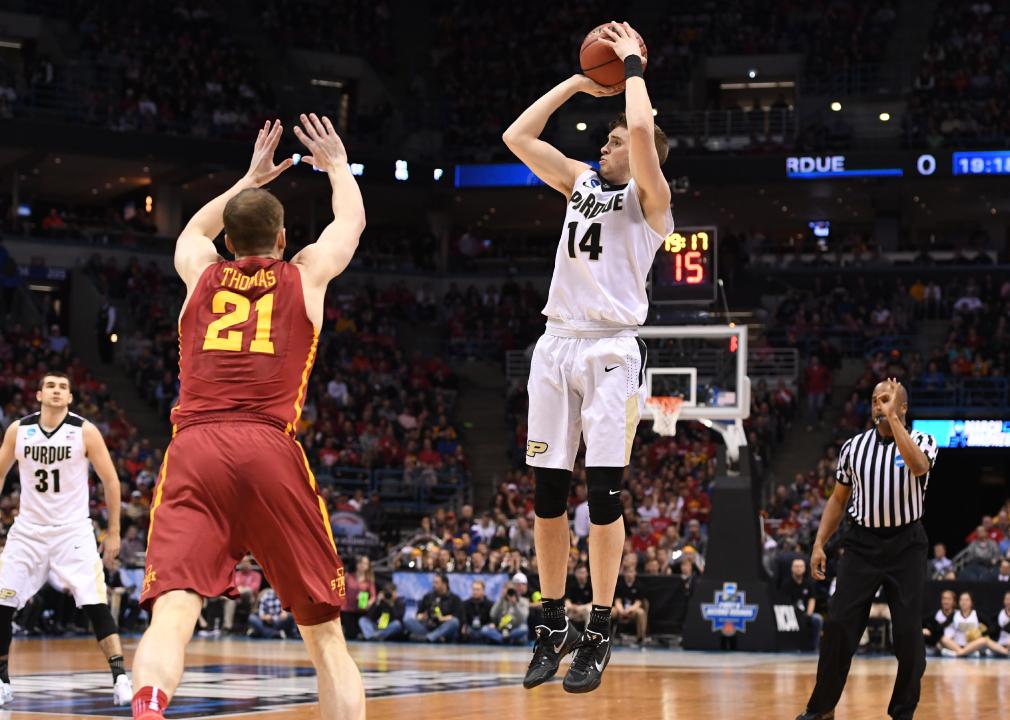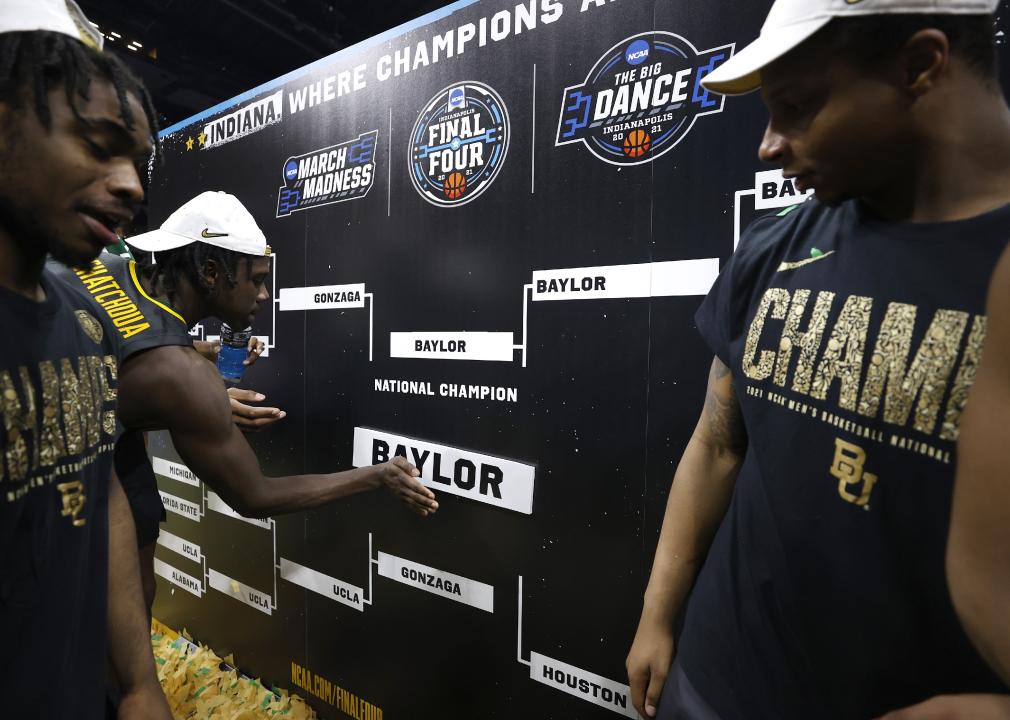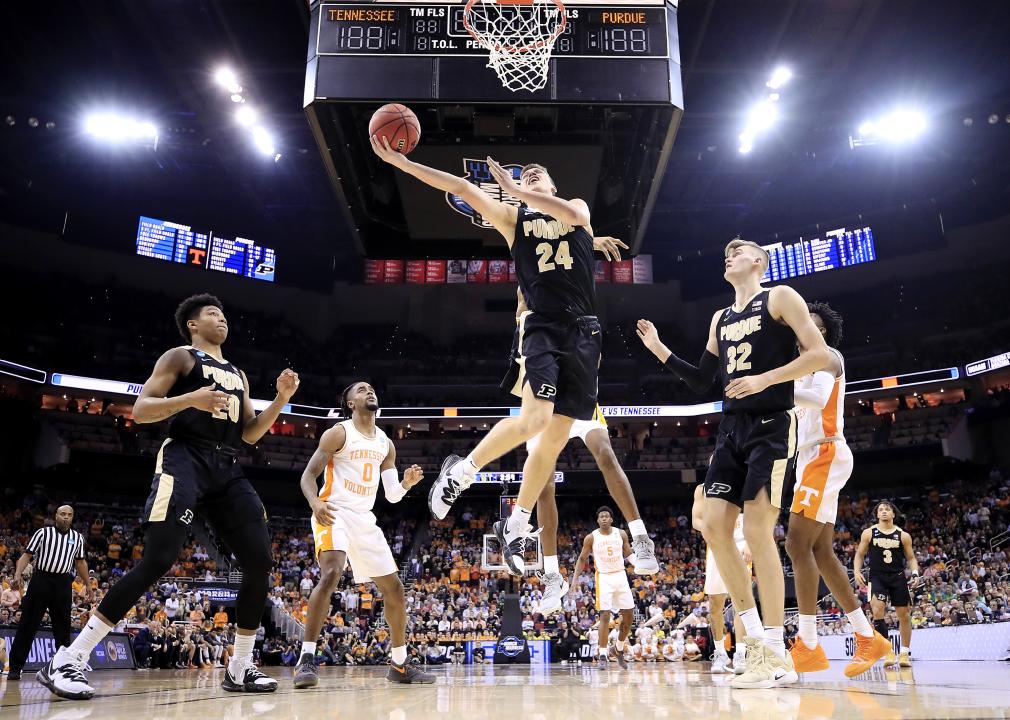Who picked the best March Madness bracket of all time?
Andy Lyons // Getty Images
Who picked the best March Madness bracket of all time?
“Bracketology” has become one of the most fan-celebrated parts of the annual NCAA college basketball tournament. Putting together a bracket is a way for the fever of March Madness to pervade entire fandoms, and to branch out even to those who otherwise have little interest in sports. Sometimes it’s a friendly wager among co-workers, a way to make the games “interesting” and add a little boost to one’s office culture. Sometimes it’s a neighborhood thing or a means by which a group of friends keeps up with one another during tournament time. And sometimes it’s with the lofty goal of attaining perfection. The “perfect” bracket is a kind of cultural unicorn for college basketball fans, seemingly impossible but also always within reach—despite the fact that it is estimated that the odds of an absolutely perfect bracket are 1 in 9,223,372,036,854,775,808. (That’s 9.2 quintillion, incidentally.)
There’s a difference, however, between perfection and general accuracy. The “perfect” bracket is one in which every game, round by round, is predicted correctly in the order in which they are played. While it is possible to achieve a bracket by tournament’s end with a higher overall number of correct picks than a number of consecutive correct picks, it pales in comparison to the intoxicating elation of the streak. (Even mega-millionaire Warren Buffett gets it; he offered his employees $1 million a year for life if they could correctly predict the Sweet 16 back in 2018.) Remember when the University of Nevada Las Vegas went 45 straight in the early 1990s? Or before that, when the Lew Alcindor-led UCLA Bruins clocked 47 straight wins in the mid-’60s? How about when those same Bruins, this time led by Bill Walton and Jamaal Wilkes, made it to 88 in the early ’70s? Each of those teams won championships and went on to put up big records in the years to follow, but it was those streaks that stay alive in the collective memory. And that same principle applies to anyone who takes their March Madness bracket seriously.
Of course, verifying the legitimacy of a bracket is very difficult, some say impossible. Back in 2010, a 17-year-old autistic teen had a perfect bracket going for the first 48 games of that year’s tournament. Or did he? Subsequent reportage seemed to suggest that the Bracket Manager the young man used was open to manipulation, in that even though the bracket was locked after the tournament began, the pool manager would be able to change picks after games had been played. As recently as 2017, Sports Illustrated made no bones about its opinion: “No person has ever been able to prove that he or she filled out a perfect NCAA tournament ‘March Madness’ bracket.”
Nonetheless, ample evidence, practical and anecdotal, exists that points to a few blessed people who have come closer to “perfection” than any others. With this year’s March Madness just around the corner, using NCAA and various sports tracking site information, along with national news outlet coverage, OLBG identified the most “perfect” brackets known to have been made over the last several years.
![]()
Jamie Sabau // Getty Images
Malachi
In 2015, a man sat in a salsa club and took a moment to check in on his bracket, which had been doing remarkably well. It was an amusing circumstance, he would later recall, telling ESPN, “I actually haven’t watched a full game this entire year.” Known only as “Malachi,” this 26-year-old Cleveland-based sign language interpreter had managed a perfect bracket at ESPN’s Tournament Challenge through the first round of 64 of that year’s NCAA tournament. Up to the final game of that round, he had company—there were five other perfect brackets alongside his. But when the #11-seeded Dayton Flyers upset the Providence Friars, the field of perfection went down to just one (out of some 11.57 million entered that year). That moment would have a short shelf life, unfortunately, as Malachi’s bracket was broken when the Arizona Wildcats bested his favored Ohio State Buckeyes 73-58 on their way to the Sweet 16. When asked about his methodology when the smoke cleared, the auteur simply said, “I can’t really give you specific reasons as to why I chose certain teams over others.”
Jamie Schwaberow // Getty Images
Dario’s Delinquents
In 2017, Yahoo! Sports had been hosting a bracket for 19 years, and over that time had seen any number of perfect runs come to abrupt and surprising ends. In 2014, an Illinois man made it to 36 before busting on a major upset (#11 Dayton taking down #1 Syracuse by a field goal). By 2017, 36 entrants’ brackets survived round one, a number swiftly cut down when #8 Wisconsin beat #1 Villanova—cut down to exactly one. Known only as “Dario’s Delinquents,” this lone outlier stretched his streak to 39 games. While Yahoo would admit that with anywhere from 60 million to 100 million registered brackets, there was a chance someone somewhere had done better—it was recognizing “Dario” as the top streak-maker that year. Of course, it had to end—and end it did when Iowa State fell to Purdue in the Sweet 16, followed immediately by the final coffin nail of Michigan’s upset of #2 Louisville.
Jamie Squire // Getty Images
Grant Anderson
Kids are maybe the best sports fans in the world. To them, the game is pure and aspirational. But that doesn’t mean they don’t see the competitive aspect, and that was certainly the case for Grant Anderson. Age 9 going on 10 when he drew up his bracket for the 2021 tourney, this Reno, Nevada, fourth-grader was all strategy. “I looked at what place [the teams were] in and how many games they won and how many games they lost,” Anderson told Nevada Sports Net. “And then I checked the difference between the teams. If one was a little bit higher, then I usually picked that team.” Bracketing was something of a family affair for Anderson—he joined a private bracket at CBS Sports sent to him by his aunt, and his mother and father both helped him track several brackets along the course of the tournament, as they had in 2018 and 2019. Anderson was perfect through 47 games in his 2021 bracket—and his overall record was astonishing: He correctly picked 58 out of the tournament’s 63 games, including Baylor’s win over Gonzaga for the championship. He successfully accrued better overall marks than the top brackets at ESPN, Yahoo, and those made public by CBS Sports. One wonders how good his report cards must be.
Kevin C. Cox // Getty Images
Gregg Nigl
“A lot of this was luck, for sure.” Well, can’t say he’s not honest. A neuropsychologist from Columbus, Ohio, Gregg Nigl was perhaps also being modest in his estimation of how in 2019 he managed to achieve what stands as the longest verifiable perfect streak in March Madness bracket history, reaching 49 games before going bust. Nigl was participating in the Capital One NCAA March Madness Bracket Challenge, which was one of four brackets he had filled out that year—it was also the last, filled out within hours of the deadline to submit. Nigl was no stranger to bracketing, having participated in several with friends and co-workers over the years, but he was adamant that he did not have anything like a firm grip on bracketology. Aside from luck, he ascribed his success to “watching a lot of Big 10 basketball, catching some of the bigger [NCAA] games … and then I always watch ‘Bracketology’ [on ESPN] on Selection Sunday.” That year’s tournament featured a number of upsets, all of which Nigl’s picks weathered, but it all came to a sudden halt when #3 Purdue topped #2 Tennessee in overtime 99-94 in the Sweet 16. Still, Nigl’s streak remains the one to beat.
This story originally appeared on OLBG
and was produced and distributed in partnership with Stacker Studio.
